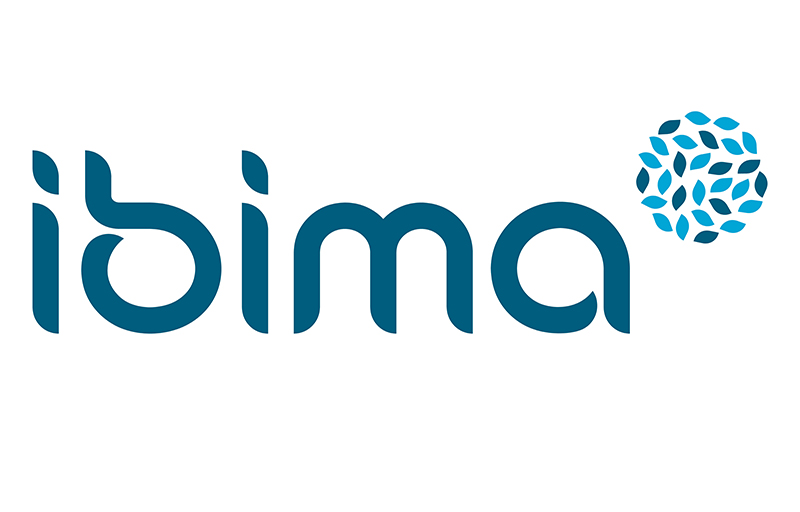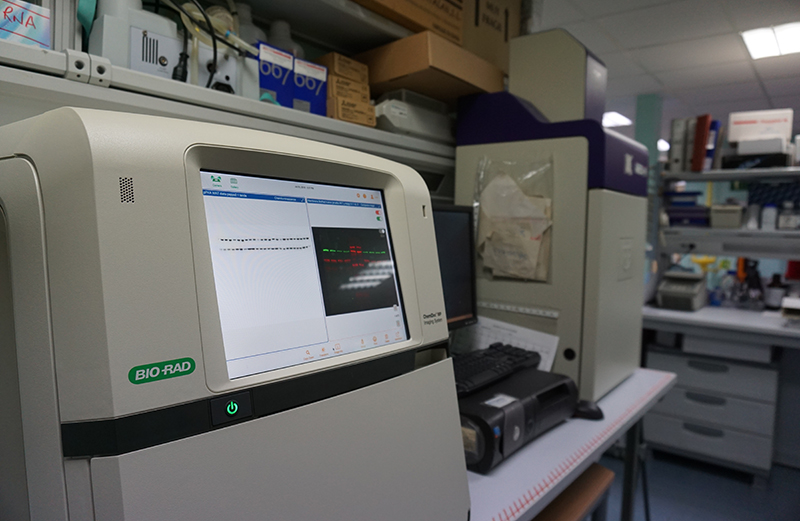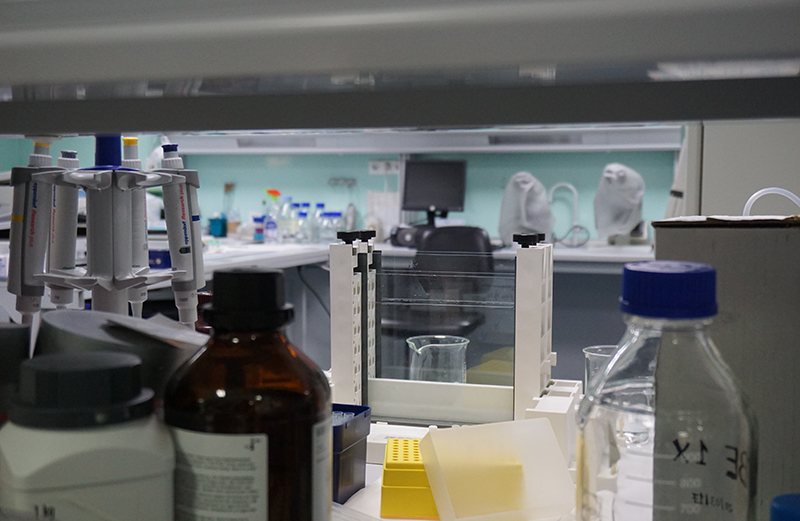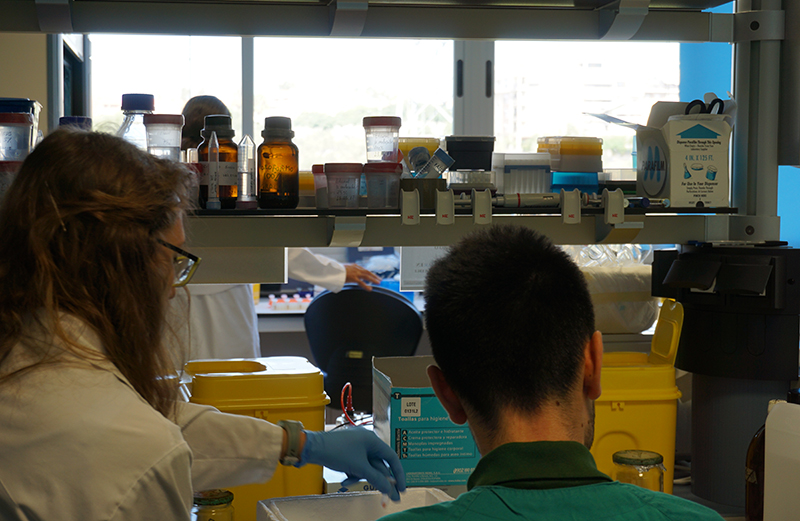



|
|
| Address | Calle Dr. Miguel Díaz Recio, 28. 29010 Málaga, Spain. |
|---|---|
| Platforms | ATMP & Biological, Biomarkers |

The Institute of Biomedical Research of Málaga (IBIMA) is a multidisciplinary biomedical research space that gathers the resources, skills and expertise of the main public Hospitals (Regional University Hospital Virgen de la Victoria Hospital), the Primary Care Centers and the University of Málaga.
IBIMA scientific activities are focused on clinical, epidemiological, biomolecular and technological translational research to accelerate the transference of the scientific breakthroughs into the prevention, diagnosis and treatment of Health Care.
IBIMA provides expertise across a wide variety of diseases ranging from endocrinology, oncology, immunology and neurosciences to cardiovascular diseases and regenerative medicine. There are 705 researchers (56% of them having healthcare activity) clustered in 39 consolidated and 12 emergent groups, distributed within 4 priority research areas:
- Cardiovascular diseases, obesity and diabetes. Environmental determinants and lifestyle.
- Oncology and Hematology.
- Neurosciences, Chronicity, Aging and Health in vulnerable populations.
- Autoimmune, Infectious diseases, Inflammation and Allergy.
And 2 IBIMA Transversal areas:
- T1. IBIMA Tech: Technology Area in Health and Innovation.
- T2. IBIMA Rare: Rare diseases.
IBIMA research activity is supported by 114 technicians and 34 management staff working within the Common Scientific Research Facilities and Research Support Units:

IBIMA Common Research Facilities (ECAI) are:
- Clinical studies
- Biobank
- Bioinformatics
- Animal experimentation
- Genomics
- Microscopy
- General research services
- Cell production and GMP rooms
- Proteomics
- Methodological and Statistical analysis
IBIMA Research Support Units (UAI) are: Quality, monitoring and evaluation; Project management; International Projects and Innovation and technology transfer.
The Málaga Health Research Center constitutes a powerful combine of expertise to provide with innovative solutions to the health issues of a reference population of almost 2 million, characterized by its heterogeneity due to the high percentage of foreigners with residence in Málaga and the population of Ceuta y Melilla, providing local access to a large number of individuals, with diverse genotypic and phenotypic features as well as very different lifestyles, for the development of unique research studies.
IBIMA belongs to the European Clinical Research Infrastructure Network (ECRIN) within its Spanish node, the SCReN, providing support to a great number of national and international clinical trials design and execution under Good Clinical Practice (GCP). Currently there are 648 active Clinical Trials of which 152 are in early phases (I and II), budgeting more than 5 million euros.

IBIMA has a Good Manufacturing Practices (GMP) Facility with 3 rooms for production of Advanced Cell Therapy Medicinal Products (AcTMP), accredited by the Spanish Agency for Medicines and Health Products (AEMPS). The current authorized manufacturing operations are isolation and expansion of mesenchymal stem cells derived from adipose tissue. The IBIMA GMP Facility fosters different lines of R&D in Cell Therapy and provides service to new clinical trials for diseases that do not have or do not respond adequately to conventional treatments such as Amyotrophic Lateral Sclerosis (ALS) or structural Fecal incontinence.
The IBIMA GMP Facility belongs to the Andalusian Network of ATMP Cell Production Units which includes 12 Units located in 8 Research Centers in the provinces of Cordoba, Granada, Malaga and Seville and is sponsored by the governmental Andalusian Initiative for Advanced Therapies (IATA).

IBIMA-Biobank is part of the Biobank of the Public Health Service of Andalusia (BB-SSPA) and the ISCIII_National Biobank Platform. The biobank supports the management, processing and preservation of biological samples with standardized criteria of quality in accordance with all applicable legislation, Biomedical Research Law 14/2007, and The Royal Decree of Biobanks RD1716 / 2011. IBIMA-Biobank has two nodes in Malaga, at both University Hospitals, Regional and Virgen de la Victoria.
In conclusion, IBIMA Research Facilities and Support Units provide the equipment and expert technical resources to support the biomedical investigation of excellence in Málaga and along with the broad clinical and biotechnological expertise of its researchers.
Institutes' Omics Technologies
Click on an item to find out more
















